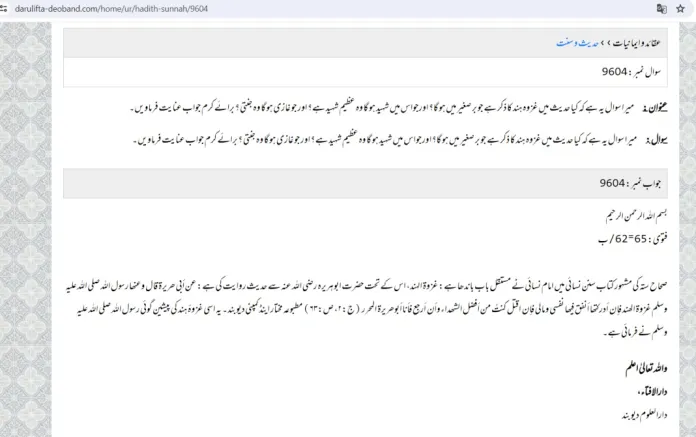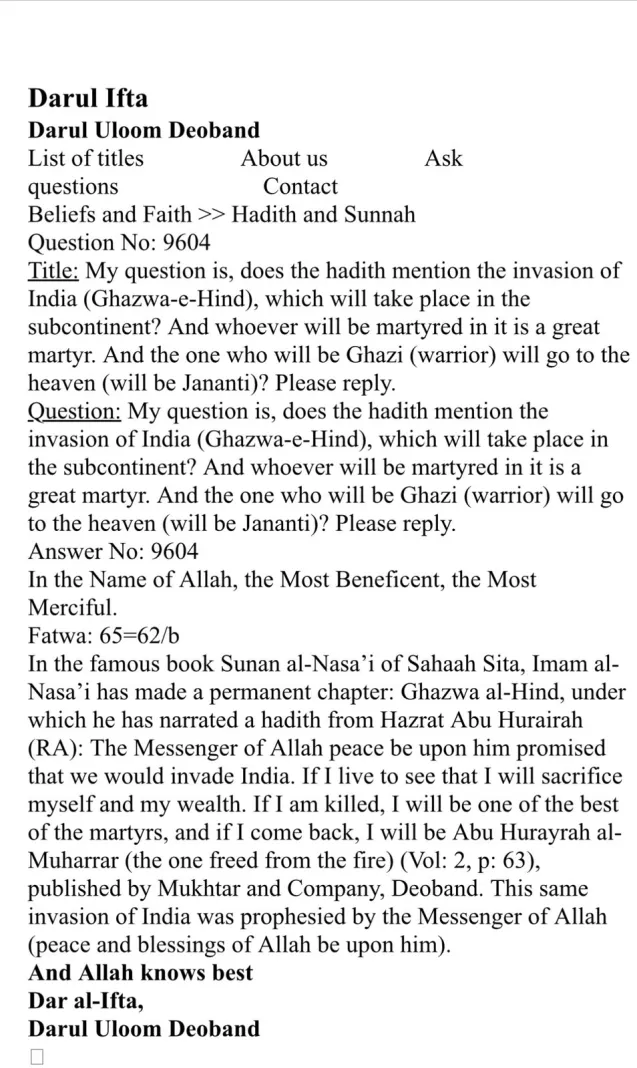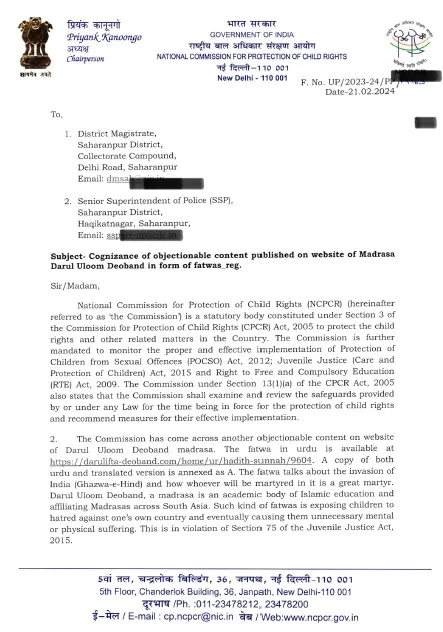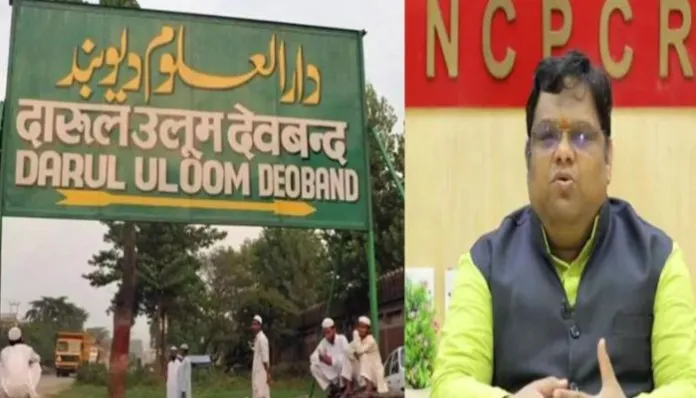Known for its controversial fatwas, the Darul Uloom madrasa of Deoband, situated in the Saharanpur district of Uttar Pradesh, has stirred controversy once again with its recent issuance of an anti-India fatwa, drawing attention from various quarters. In this fatwa, Darul Uloom has acknowledged the concept of Ghazwa-e-Hind, as mentioned in Islamic scriptures, asserting that individuals who perish during an invasion of India will be revered as great martyrs and rewarded with entry into Jannat.
The issuance of this fatwa has prompted the National Commission for Protection of Child Rights (NCPCR) to take swift action. NCPCR Chief Priyank Kanoongo has lodged a complaint against the fatwa, directing the Saharanpur Sub-Divisional Magistrate (SDM) and Superintendent of Police (SP) to file a First Information Report (FIR) in this regard.
In response to a query posed to Darul Uloom Deoband regarding the validity of the concept of Ghazwa-e-Hind, the madrasa referred to a hadith from Sunan al-Nasa’i, wherein Hazrat Abu Hurairah (RA) purportedly narrates a prophecy by the Messenger of Allah regarding an invasion of India. The madrasa cited this hadith as evidence of the prophesied invasion and the status of those who partake in it as martyrs.


The NCPCR, upon learning of the fatwa, expressed deep concern over its potential to instigate hatred against the country among children. Citing Section 75 of the Juvenile Justice Act, 2015, which prohibits actions leading to children’s mental or physical suffering, the NCPCR underscored the gravity of such inflammatory rhetoric, especially within educational institutions.
The NCPCR said, “The Commission has come across another objectionable content on the website of Darul Uloom Deoband madrasa. The fatwa in Urdu is available at https://darulifta-deoband.com/home/ur/hadith-sunnah/9604. A copy of both Urdu and translated versions is attached. The fatwa talks about the invasion of India (Ghazwa-e-Hind) and how whoever will be martyred in it is a great martyr. Darul Uloom Deoband, a madrasa is an academic body of Islamic education and affiliating Madrasas across South Asia. Such kinds of fatwas expose children to hatred against their own country and eventually cause them unnecessary mental or physical suffering. This violates Section 75 of the Juvenile Justice Act, 2015”

Highlighting previous instances of contentious fatwas issued by Darul Uloom Deoband, the NCPCR emphasised the need for decisive action by the district administration. Despite prior alerts to the administration regarding objectionable content on the madrasa’s website, including requests for investigation and blocking of access, no concrete steps have been taken, raising questions about accountability.
The notice further said, “Taking suo motu cognisance of the matter u/s 13 (1) (j) of the CPCR Act, it was observed that the content of the fatwa may lead to hatred against the country. In Kedar Nath Singh vs. State of Bihar, AIR 1962 SC 955, the Court emphasised that the phrase “Government established by law” under section 124A must be distinguished from criticism of a specific party or persons. The Court stated that this interpretation finds support from the title of the relevant chapter in the Indian Penal Code, which is headed “Offences against the State”. Therefore, the hatred against the country i.e. India will be covered under the said provision (reference Kanhaiya Kumar vs. State of NCT of Delhi).
The NCPCR chief Kanoongo said in the notice, “Earlier in January 2022 and July 2023, Commission had brought to the attention of District Administration that there is a large number of fatwas on Darul Uloom Deoband’s website that mislead the public and had requested to thoroughly examine, investigate this organisation’s website and any such website be immediately blocked. It was also requested to block access to the website. However, the District Administration has not yet taken action on the same and has not lodged any FIR in the matter. The Commission is of the view that by not taking any action, the District Administration would be equally responsible for any untoward consequences arising out of such content being consumed by the public.”
In light of these concerns, the NCPCR has directed the SSP to take immediate action under relevant legal provisions, including the Indian Penal Code and the Juvenile Justice Act, 2015, and has demanded a prompt action taken report within three days. The commission reiterated the urgency of addressing such issues to prevent any adverse consequences stemming from the dissemination of divisive ideologies.




















Comments